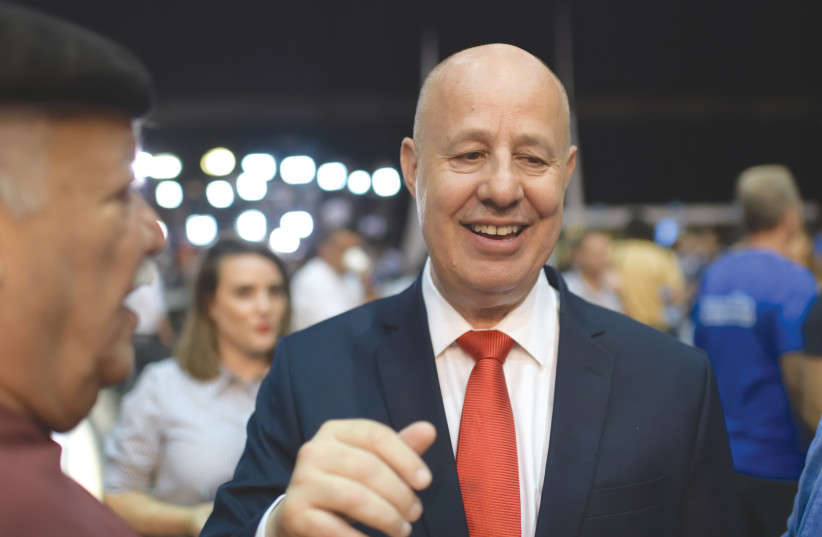Israel has set its foreign policy objectives based primarily on its battle to halt Iran’s nuclear weapons program and regional aggression, National Security Advisor Tzahi Hanegbi said on Monday.
The definition of Iran as the main adversary affects the order of priorities, Hanegbi told the Knesset Foreign Affairs and Defense Committee, which held a closed-door briefing on the security challenges facing the country.
Iran is behind the overwhelming majority of the challenges and threats facing Israel, he said, according to a statement published after the meeting.
Iran and additional normalization deals with Arab countries such as Saudi Arabia are a top priority for Israel, Hanegbi said.
He spoke just one day after US President Joe Biden told CNN he didn’t think that Saudi Arabia “had much of a problem with Israel.”

The US would be the main broker of any Israeli-Saudi normalization deal and as part of that process, Riyadh has sought concessions from the Biden administration on the issue of a nuclear power plant and security.
Biden told CNN that US support for a Saudi civilian nuclear power program or being a “guarantor of its security” is a “little way off.”
Hanegbi briefs FADC on Israeli-Saudi deal
On Monday, Hanegbi briefed the FADC on the feasibility of an Israeli-Saudi deal and the possible timetable for such an arrangement.
He spoke with the FADC about the ongoing dialogue with the US on maintaining Israel's qualitative military edge and updated them on the country’s progress toward entering America’s visa waiver program.
Israel has until the end of September to meet all the requirements so that its citizens can travel to the US without obtaining a visa.
Hanegbi spoke with the FADC about the importance of shoring up the Palestinian Authority, adding that he hoped that another meeting of the forum of five would be held in the near future. That forum involves officials representing the PA, Israel, Egypt, Jordan and the US.
Hanegbi also briefed the FADC on efforts to secure from Hamas the release of two Israeli citizens held captive in Gaza and the return of the bodies of two soldiers believed killed in the Strip during the 2014 war.
